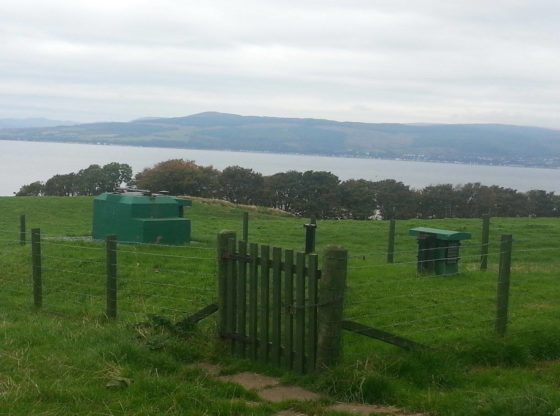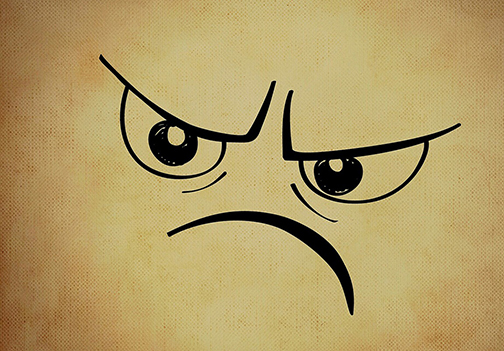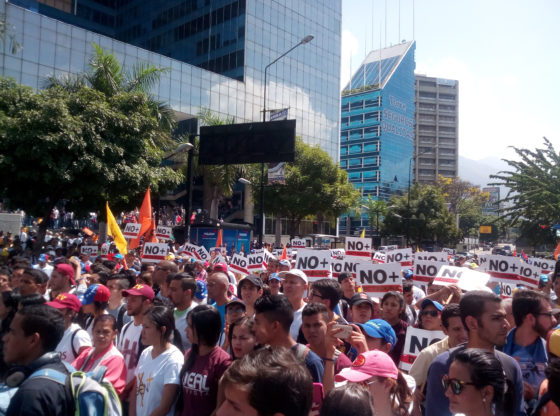Ahead of the 2016 European Union referendum, Brexiteers argued that the UK fishing fleet would benefit greatly if the UK left the union. This argument continues to be made by government officials. Casting a critical eye across these claims, Graham Avery forecasts tension and disappointment ahead.
Fisheries policy played a prominent role in Britain’s EU referendum in 2016. Visually, the high-water mark was the flotilla of ‘Fishing for Leave’ vessels, captained by Nigel Farage, sailing past the Palace of Westminster. Politically, generous promises were made: George Eustice (Fisheries Minister) declared that British fishermen would ‘be able to catch hundreds of thousands of tonnes more fish after Brexit’. The ‘Fishing for Leave’ group claimed that Brexit would deliver ‘a golden opportunity to regain 70% of the UK’s fisheries resources’.
The debate was emotional: Michael Gove (then Justice Secretary, and a former journalist) claimed that the EU destroyed his father’s fish processing business, and then accused journalists of trying to ‘serve their agenda’ by interviewing his father. The arguments of the Leave campaign did not go unchallenged. Liz Truss (then Environment Secretary, responsible for fisheries policy) said that “UK fishermen are better off inside the EU” and that it was “wishful thinking to suggest that Britain could get a better deal for its fishermen outside of Europe.”
What are the prospects now, a year later? Britain has begun negotiations to leave the EU. Michael Gove is Environment Secretary, responsible for fisheries, with George Eustice as his Fisheries Minister. Can they deliver the promises that were made? Will Brexit herald a new age of plenty for British fishermen? What about Scotland, where fishing is important, and Brexit is expected to lead to further devolution of powers to Edinburgh?
BREXIT: THE SCENARIO
After leaving the EU, the UK will no longer apply the Common Fisheries Policy. Even the European Economic Area, the EU’s closest economic relationship with other countries, in which Norway and Iceland accept the rules of the Single Market, does not include fisheries and agriculture. So we can suppose that on 29th March 2019, when the two-year time limit of Article 50 expires, the Common Fisheries Policy will be replaced in the UK by national rules. Britain will exercise national control of fisheries in its exclusive economic zone of 200 miles. It will be able to decide what access to grant EU vessels, while the EU will be able to decide on access of British vessels to its waters. However, this does not mean that will be simple for the UK to take unilateral action on quotas for British fishermen.
In fisheries, Britain basically exports what it catches, and imports what it eats. It lands 700,000 tonnes of fish annually, and exports 500,000 tonnes, of which two-thirds go to other EU member states.
Fisheries is expected to form part of the ‘bold and ambitious free trade agreement’ envisaged by the British government. In fisheries, Britain basically exports what it catches, and imports what it eats. It lands 700,000 tonnes of fish annually, and exports 500,000 tonnes, of which two-thirds go to other EU member states. Thus, nearly half of UK-caught fish – worth some £1 billion – are sold to the EU. The timetable for Brexit trade negotiations is unclear: although the UK government hopes negotiations will be sufficiently advanced for an agreement to be in effect from 29th March 2019, it seems more likely that a transitional period will be needed to finalise the details. In any case, whatever the timing, the EU-27 will argue that continuation of tariff-free trade in fish depends on British willingness to cooperate in other areas of fisheries policy including the fixing of ‘total allowable catches’, the allocation of national quotas, and the maintenance of mutual access to fishing in each other’s waters.
An alternative, more pessimistic, scenario is one in which the Brexit negotiations break up because of irreconcilable differences, without any agreement on trade or other matters. This would be a bad result for the British fishing industry, whose exports to the EU would face tariffs of 12% on average.
FISHERIES: INTERNATIONAL RULES
Whether or not agreement is reached on future UK/EU trade relations, the possibility for the UK to take unilateral action on fishing quotas is circumscribed by the fact that, inside or outside the EU, it is bound by the United Nations Convention on the Law of the Sea, signed in 1982. This international agreement says that a coastal state has the right to control fishing within its 200-mile zone, but must also ‘seek to agree upon the measures necessary to coordinate and ensure the development of shared stocks’. This clause is designed to avoid states setting catch limits unilaterally, which usually leads to overfishing and damage to stocks. Michael Gove’s recent announcement that the UK will leave the London Fisheries Convention, signed in 1964, under which mutual fishing rights within 6-12 miles were agreed with six neighbouring countries, does not change the situation in respect of the UN Convention.
When fish swim, they recognise no national boundaries. Virtually all commercial fisheries in British waters are ‘shared stocks’ that are also found in the waters of other EU member states and/or Norway. Effective conservation of these shared stocks requires joint management with the EU and Norway of total allowable catches and national quotas. Norway, for its part, has a framework agreement with the EU which obliges it to agree total allowable catches for North Sea stocks in its waters.
Under the Common Fisheries Policy, the basic principle of quota allocation is ‘relative stability’ under which each country receives a share of the total allowable catch for each stock. These shares are based on historic records, mainly for the period 1973-78 before 200-mile limits were introduced. British fishermen consider that this method of allocation is an injustice, and believe that after Brexit the UK will be able to exploit other countries’ desire to fish in UK waters to insist on a more favourable quota allocation. But fishermen in other EU states see things differently: they observe that British vessels in Irish, German, French and Dutch waters obtain catches worth £100 million a year.
It would be difficult enough for the UK, as a member state of the EU, to obtain agreement on a new set of basic principles. To do so as a non-member of the EU would be impossibly difficult.
The British government - well aware of the need to seek international agreement - apparently intends to negotiate a general reform of the system for allocating quotas. George Eustice has explained that with Brexit, “everything would be put back on the table for discussion including total allowable catches and access rights. We would conduct an assessment of the zonal attachment of stocks and an assessment of spawning grounds and this science would help inform a new settlement… Once the initial reform had been delivered, annual fisheries negotiations would then become simpler”.
But it is hard to see the EU accepting any other basis for negotiating quotas with the UK than relative stability, particularly if the adoption of another method would lead to reduced quotas for EU fishermen. It would be difficult enough for the UK, as a member state of the EU, to obtain agreement on a new set of basic principles. To do so as a non-member of the EU would be impossibly difficult. Although the EU member states will want their fishermen to have access to UK waters, they will have plenty of leverage to obtain that during and after the Article 50 negotiations, including the possibility of applying tariffs on imports of fish from the UK.
Some will criticise this analysis as defeatist or ‘unpatriotic’. But there is no realistic prospect of the UK obtaining agreement for a ‘better’ allocation of fishing rights than the present one. Indeed, it may even lose (or have to pay for) British fishing rights in North Norwegian waters that are currently ‘paid for’ by transfers to Norway from other member states’ fishing allocations.
UNILATERAL ACTION?
The UN Convention on the Law of the Sea obliges parties to ‘seek to agree upon the measures necessary to coordinate and ensure the development of shared stocks’. The UK will respect this clause after Brexit because it traditionally supports international rules, and also because it has an interest in the sustainability of fish stocks. However, agreement requires the consent of all parties concerned, and the Convention imposes no penalty on those who refuse consent. So, in the absence of agreement, the UK could decide to make a unilateral allocation of quotas for stocks in its 200-mile zone, and exclude or limit access for the vessels of its European neighbours. The EU would then no doubt fix quotas for the same stocks fished in EU waters, and deny access for UK vessels. There is precedent for this kind of action in the case of Iceland, which in the past has fixed quotas unilaterally after disagreement with the EU and other coastal states.
John Bruton, Ireland’s former Prime Minister, has warned that ‘in the absence of agreement, one can easily envisage clashes, even physical clashes, in the seas around us’.
But the scenario of unilateral British action presents several problems. First, the EU would almost certainly retaliate by applying tariffs on imports of fish from Britain. It has already followed that course of action (with British consent) in the case of Iceland. This would be painful for many sectors of the British fishing industry: for example, the possibility to export to the EU is very important for Scottish West Coast fishermen, especially for high-value sea-food.
Second, foreign vessels could decide to fish in British waters in defiance of British law. John Bruton, Ireland’s former Prime Minister, has warned that “in the absence of agreement, one can easily envisage clashes, even physical clashes, in the seas around us”. Even if the UK had the capacity to exclude foreign vessels by force (at present it has 6 fisheries protection vessels), such action would undermine its political relationship with its neighbours.
Thirdly, unilateral decisions by one country on ‘fairer’ catch quotas for its own fishermen create an incentive for others to do the same. Fishermen everywhere are tempted to demand higher quotas, contrary to scientific advice, as a way of maximising catches in the short term. That is why sustainable management of stocks is so difficult.
CONCLUSION
As Brexit approaches, claims that a new age of plenty dawns for British fishermen appear unrealistic. Although there is certainly scope for an improved national fisheries policy, increases in quotas on the scale promised are illusory. They will not be obtained by agreement with European neighbours, and if imposed by unilateral action they would have painful consequences for Britain and could lead to over-fishing.
With this in mind, ministers in London and Edinburgh need to be prudent in handling expectations concerning fishing quotas and access. If Brexit is accompanied by no significant increase in Britain’s share of quotas, fishermen will vent their wrath. In the eye of the storm will be Michael Gove, a leading proponent of Brexit and an expert on fisheries, together with George Eustice, the architect of post-Brexit fisheries policy.
The question may even be asked, in the context of a future Scottish independence referendum after Brexit, whether Scotland would be better placed to negotiate fisheries quotas inside the EU than outside.
For the Scottish government, the matter is doubly delicate. Fisheries in Scotland is more important in relation to the economy and the workforce than in England. Furthermore, the repatriation of powers from Brussels was long expected to lead to more devolution to Edinburgh. But responsibility for international fisheries affairs, including negotiations on trade, and total allowable catches and quotas, are ‘sovereign’ powers which will be reserved to Westminster, not devolved to Holyrood. The sharing of that international responsibility, and the input of the Scottish government to negotiations, will continue to be a source of tension between Holyrood and Westminster. The question may even be asked, in the context of a future Scottish independence referendum after Brexit, whether Scotland would be better placed to negotiate fisheries quotas inside the EU than outside.
On a recent visit to Peterhead in Scotland, Michael Gove declared that leaving the EU will create a “sea of opportunity” for the fishing industry, and “dramatically increase” the amount of fish caught. Supporters of Brexit continue to praise ‘power over fisheries’ as a benefit of quitting the EU. But in Scotland, where 62% of the population voted to remain in the EU, and fishing interests are proportionally greater than in the rest of the UK, there is a real danger of political backlash if voters realise that unrealistic hopes have been created, and promises have been broken.
Graham Avery is an independent analyst and Senior Member of St. Antony’s College, Oxford.
Featured image: A Guernsey Channel Islands fishing boat. Image: Max Pixel [CC0 1.0]










